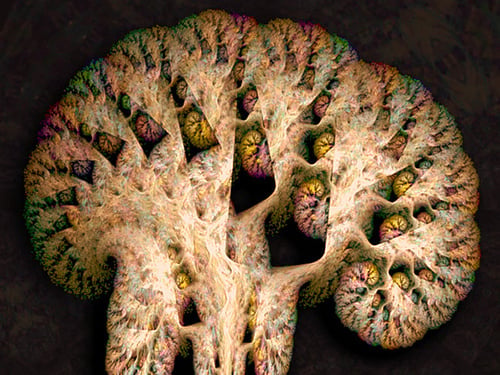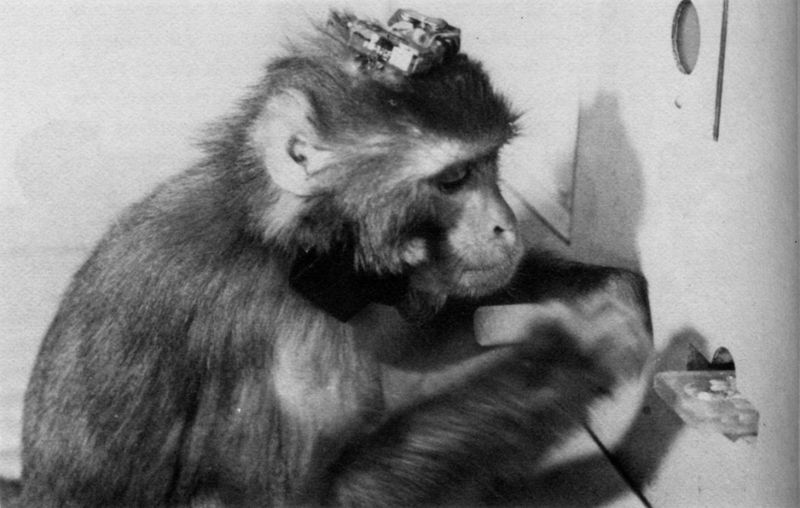The fog had begun to burn off, then returned to wrap around the hills and linger over the fields. As it began to lift again, the mist refracted the light so that every leaf and twig stood out with tremendous vividness.
 Despite the earth-hugging cloud, the morning was mild, and there was little dampness or chill. I sat without discomfort under the big sycamore, peering out over the fields toward the enshrouded canyon and foothills beyond town.
Despite the earth-hugging cloud, the morning was mild, and there was little dampness or chill. I sat without discomfort under the big sycamore, peering out over the fields toward the enshrouded canyon and foothills beyond town.
The visibility was about 150 meters. Suddenly for the first time in months, I see a falcon, right at the edge of the fog. It flies 20 meters or so, and then hovers, repeating the pattern a half dozen times until it disappears into the mist.
The sight of the kite’s exquisitely graceful flight at the edge of the world produces a reverential feeling. The things around one, which had appeared flat and colorless, immediately come alive. It feels as though I was seeing an ancient earth with the eyes of everyone who had ever felt its mystery.
I realize that when we are deeply aware of the earth, and look with silent mind and innocent eyes, we are seeing it through the eyes of all people who lived and loved upon it.
Despite the drought, the little creek, which is completely dry even during normal summer months, is running full in late spring in northern California. For the Native Americans who made this area their home (a member of a local tribe told me this area was a favorite prayer site many decades ago), the return of the water would have been an important event.
Standing slowly and rising to my full height, the entire panorama stretches out before and within one. The sight of the monster houses scarring the mouth of the canyon is a glaring reminder of the present world. This town had the sense to preserve the canyon, but allowed its viewshed to be destroyed so a wealthy few dozen families could have a commanding view of the town.
Behind me, in the same vein of shortsighted stupidity, the city has built a monstrosity of a courthouse in the middle of the field over which the kite falcons used to hover. Recently opened, it sits alone in the field, waiting for the so-called development that will soon envelop that last open spaces.
Adding insult to injury, the building doesn’t have a shred of aesthetic appeal. It looks like three different architects designed it, each adding a different ill-fitting appendage.
The welcome sun begins to warm my back. It quickly dispels the fog over the fields and hills. Involuntarily, I stand still for a few more minutes, overwhelmed by the beauty of the earth, and grateful for the capacity and time to perceive it.
Whether one calls it meditation, mindfulness or simply awareness, learning the art of undivided observation is essential to staying inwardly alive and young of mind and heart in this divisive and decisive age.
The human brain, for tens and perhaps hundreds of thousands of years, has cultivated an accumulative mind. The hominid brain evolved to store all the information about its surroundings that it could. From that storehouse, the brain formed useful knowledge and skills to exploit vastly different environments. No other animal on earth does this.
Unfortunately, this accumulative tendency does not stop with useful information and harmonious human development. Inwardly, the brain records virtually all experiences, including every insult, hurt and sorrow. That vast accumulation is the psychological basis of individual darkness and collective evil. Outwardly, man is plundering the earth, decimating the last wild places.
Evil never originates solely from the individual, but is a collective reality, emanating from the storehouse of millennia of unaddressed fear, alienation, hurt and hatred. It flows through the individual who acts out and refuses to take responsibility for and learn from the darkness that’s within all of us.
Conditioning is not a given. The mind/brain has the capacity to see things afresh and remain innocent. One has to work at it though, at once arduously and playfully, or stultifying conditioning and the dead culture, the ultimate expressions of the psychological content of human consciousness, steadily narrow the mind, shrink the heart and limit the capacities of the brain.
A spontaneous shift in consciousness begins the moment that the accumulative mind/brain begins to empty itself of the unnecessary content of memory. That includes images about one and others; automatic associations triggered by internal or external stimuli; and identifications and ideologies regarding ‘my family’ and ‘my country.’
Psychological content is divisive, and has grown to the point of suffocating the human spirit. It is the putrid soil of the perpetual war Western politicians have declared and spread in reaction to pathetically powerless and criminally psychopathic terrorists. And it is destroying the spiritual potential of the human being.
For the mind’s habitual separative and accumulative pattern to end, and the emptying of the mind and heart to occur, the automatic program of the ‘me’ has to be deactivated in undirected observation. There is no method to doing so; one simply has set aside a little time each day to passively and diligently watch the movement of one’s own thoughts and emotions, preferably in the mirror of nature.
Then one finds the habit of separation and accumulation—the root of self-centeredness and selfishness—spontaneously ends. One is renewed, and feels inextricably part of this stupendous earth again.
Martin LeFevre

